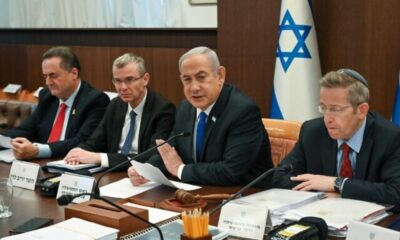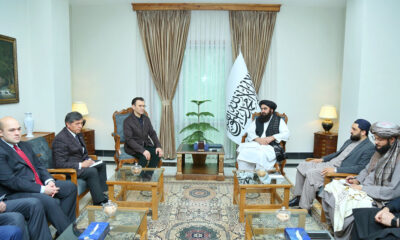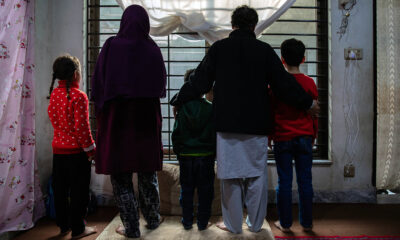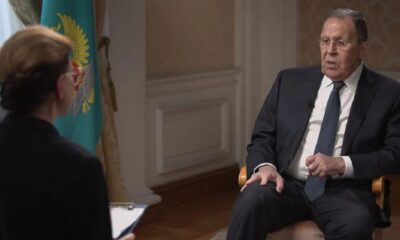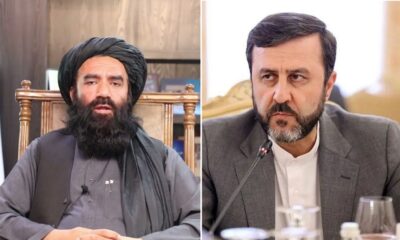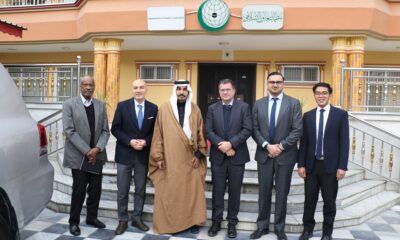Regional
IAEA chief says Iran’s nuclear enrichment activity remains high
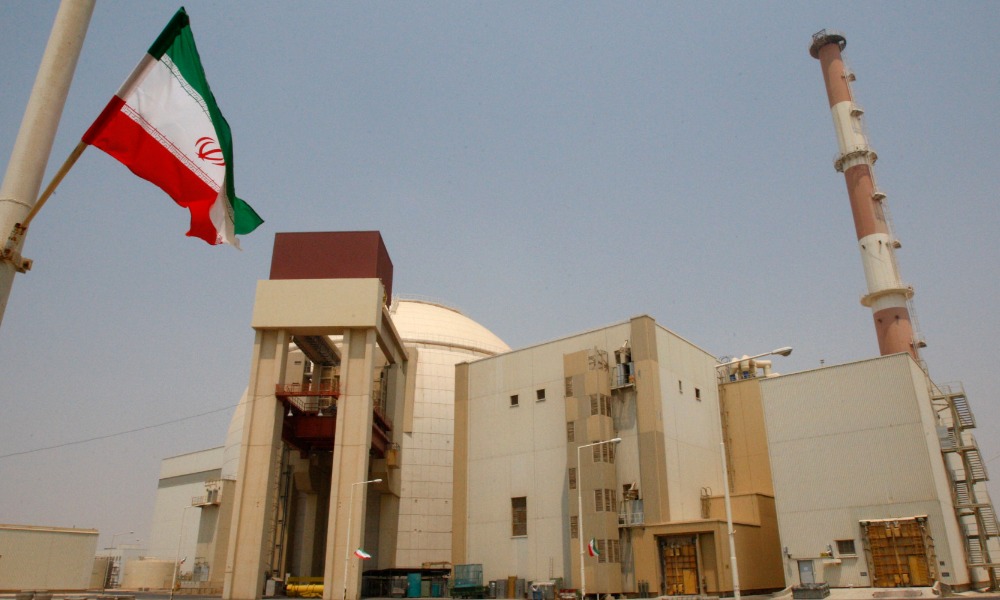
Iran continues to enrich uranium well beyond the needs for commercial nuclear use despite U.N. pressure to stop it, IAEA chief Rafael Grossi said on Monday, adding he wanted to visit Tehran next month for the first time in a year to end the “drifting apart”.
Speaking to Reuters after he briefed EU foreign ministers on the subject, the head of the U.N.’s nuclear watchdog said that while the pace of uranium enrichment had slowed slightly since the end of last year, Iran was still enriching at an elevated rate of around 7 kg of uranium per month to 60% purity, Reuters reported.
Enrichment to 60% brings uranium close to weapons grade, and is not necessary for commercial use in nuclear power production. Iran denies seeking nuclear weapons but no other state has enriched to that level without producing them.
Under a defunct 2015 agreement with world powers, Iran can enrich uranium only to 3.67%. After then-President Donald Trump pulled the U.S. out of that deal in 2018 and re-imposed sanctions, Iran breached and moved well beyond the deal’s nuclear restrictions.
Between June and November last year, Iran slowed down the enrichment to 3 kg per month, but jumped back up to a rate of 9 kg at the end of the year, the watchdog, known as the International Atomic Energy Agency (IAEA), previously reported.
The increase came soon after Tehran barred a third of the IAEA’s core inspections team, including the most experienced, from taking part in agreed monitoring of the enrichment process, read the report.
“This slowdown, speedup thing is like a cycle that for me does not alter the fundamental trend, which is a trend of constant increase in inventory of highly enriched uranium,” said Grossi.
A spokesperson for Iran’s Atomic Energy Organisation was not immediately available for comment.
The IAEA warned at the end of 2023 that Tehran already had enough material to make three nuclear bombs if it enriches the material now at 60% to beyond 60%.
“There is a concerning rhetoric, you may have heard high officials in Iran saying they have all the elements for a nuclear weapon lately,” Grossi said.
He said the concern was all the higher because of what he termed current circumstances in the Middle East, a reference to tensions over Israel’s war with Iran-backed Hamas in Gaza.
“We seem to be drifting apart… Iran says they are not getting incentives from the West, but I find this logic very complicated to understand because they should work with us… It should never be contingent on economic or other incentives.”
Before visiting Tehran, Grossi is to fly to Moscow to meet Russian President Vladimir Putin to discuss Iran and the Middle East, along with Ukraine.
Russia is a signatory of the 2015 deal, known as the Joint Comprehensive Plan of Action (JCPOA), alongside the U.S., China, France, Britain and Germany. The deal lifted sanctions on Iran in exchange for curbs on its nuclear activities.
“Russia has a role to play on Iran. It has played a role in the past as a JCPOA country and in the current circumstances where JCPOA is all but disintegrated, something must fill the void,” he said.
Grossi said he saw a decrease in military operations around the Russian-occupied Zaporizhzhia nuclear power plant in Ukraine, the biggest nuclear power plant in Europe, Reuters reported.
Fears of a serious nuclear incident were high when Russian forces took over the facility in 2022 and again following the destruction of the Kakhovka Dam last year.
“There hasn’t been a militarization, any deployment of heavy artillery,” he said, adding that nearby combat zones and recurring blackouts remained a worry.
“The minimum staff required to look after the plant in the current situation is there,” he said.
Grossi said the minimum staffing was still met despite about 100 members refusing to sign a new contract with Russia’s Rosatom that took over operations of the idled plant in 2022.
The EU has so far held back on sanctioning Russia’s state-owned nuclear firm Rosatom or any of its subsidiaries despite numerous calls to target that industry. Europe still relies heavily on Rosatom which supplies nearly 50% of the world’s enriched uranium.
“Many companies in the West depend on Russian supplies – enriched uranium or fuel… The consensus is sanctioning Rosatom would not be realistic and it’s impractical. It would put the nuclear industry at a standstill in many countries,” Grossi said.
Reducing dependence on Russia’s nuclear sector would cost Europe billions, Grossi said, and he saw no immediate shift away. He added that the larger issue was infrastructure and incentives, and projections of rising uranium demand globally.
“Frankly, I see an increased presence of Russian uranium enrichment capabilities in the world rather than a decrease,” he said.
Regional
Arab states condemn Israel’s move to expand powers in occupied West Bank
Israel’s security cabinet approved measures that will make it easier for Jewish settlers to purchase land in the West Bank and grant Israeli authorities greater powers in areas under Palestinian control.
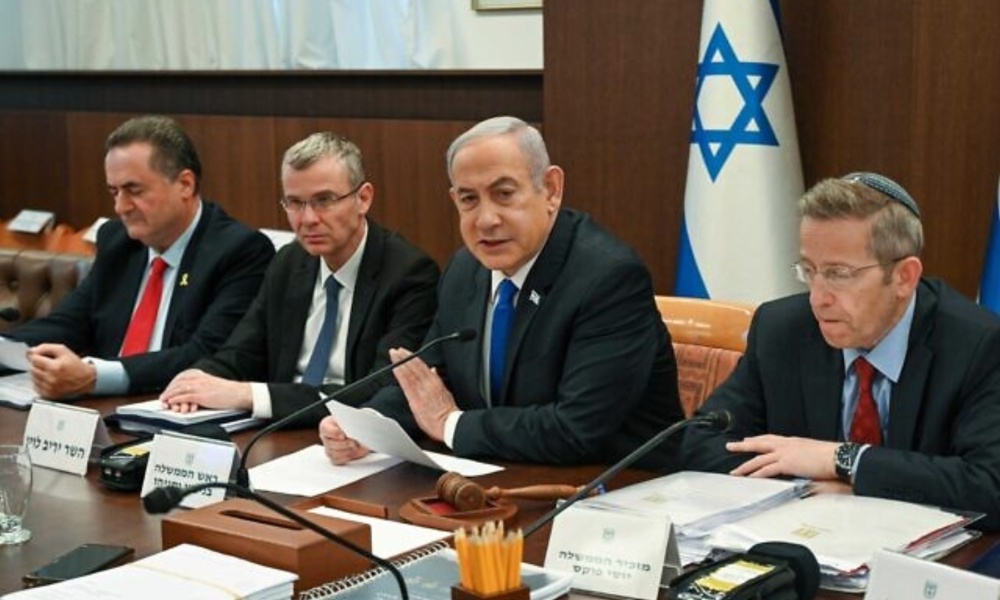
Saudi Arabia, Jordan and the United Arab Emirates led regional condemnation on Monday of Israel’s decision to ease settlement expansion and broaden its authority across the occupied West Bank, a move critics say amounts to de facto annexation.
Israel’s security cabinet approved measures on Sunday that will make it easier for Jewish settlers to purchase land in the West Bank and grant Israeli authorities greater powers in areas nominally under Palestinian control, Reuters reported citing two senior Israeli ministers.
Finance Minister Bezalel Smotrich, an ultranationalist figure in Prime Minister Benjamin Netanyahu’s coalition, said the decisions would “continue to kill the idea of a Palestinian state.”
In a joint statement, foreign ministers from several Middle Eastern and Muslim-majority countries — including Egypt and Turkey — denounced the measures as illegal under international law and warned they would undermine prospects for a two-state solution and regional stability.
Jordan, Egypt, the UAE and Turkey all maintain diplomatic ties with Israel, while Saudi Arabia has said it will not normalise relations without the establishment of a Palestinian state.
Most countries view the West Bank, occupied by Israel since 1967, as the core of a future Palestinian state.
Israeli Defence Minister Israel Katz and Smotrich said the cabinet had repealed a pre-1967 Jordanian-era law that kept land registries confidential and scrapped a permit requirement for land purchases, steps they said would simplify transactions for Jewish buyers.
Settlement watchdog Peace Now said the move violated international law and marked a significant step toward annexation. “This treats the West Bank as normal Israeli territory rather than occupied land,” said Hagit Ofran of the group.
The cabinet also expanded Israeli enforcement powers over water use, archaeological sites and environmental issues into Areas A and B of the West Bank — zones that, under the 1993 Oslo accords, are under Palestinian or joint control. Peace Now said the changes could pave the way for wider demolitions of Palestinian property and further restrictions on Palestinian development.
U.N. Secretary-General Antonio Guterres expressed “grave concern,” warning the measures were eroding the viability of a two-state solution, his spokesperson said.
In Hebron, Palestinians said the decisions would accelerate settlement growth and home demolitions. “It becomes easier to confiscate land, expand settlements and demolish Palestinian homes,” said Issa Amr of the group Youth Against Settlements.
Regional
Iran arrests at least four reform front politicians
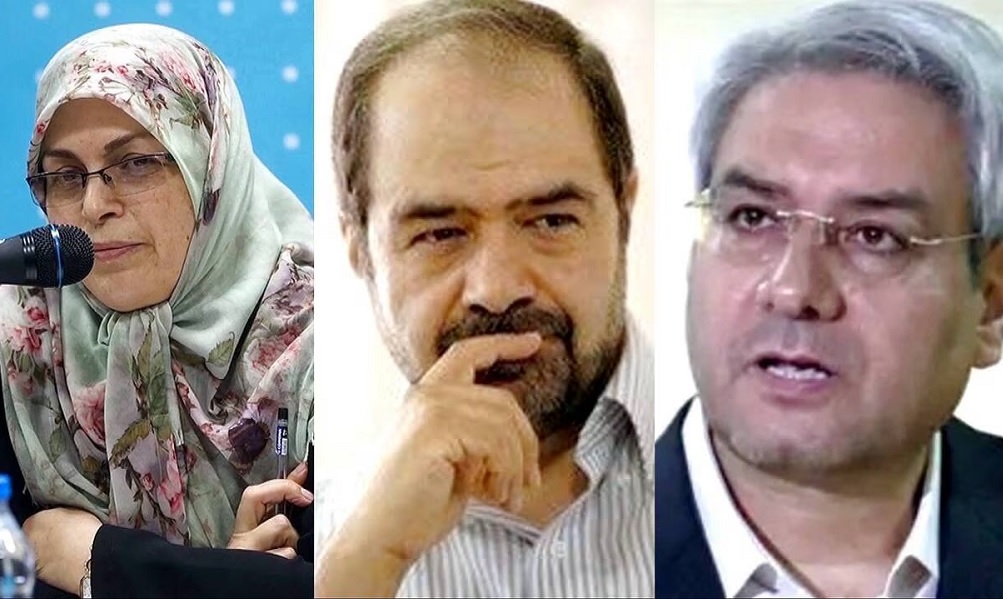
The Islamic Iran Nation’s Union Party sought the release of secretary-general Azar Mansouri, the Shargh newspaper said on Monday, after her arrest along with other members of the Reform Front, an umbrella body of Iranian reformists and moderates.
A campaign of mass arrests and intimidation has led to the arrests of thousands as authorities seek to deter further protests after last month’s crackdown on the bloodiest unrest since the 1979 Islamic Revolution.
On Sunday, state media said three senior figures from Iran’s Reform Front were arrested, among them Ebrahim Asgharzadeh, Mohsen Aminzadeh, and Azar Mansouri, who acts as the front’s head, according to Reuters.
Shargh said at least two more Reform Front members were asked to report to the prosecutor’s office in Tehran’s Evin prison on Tuesday.
The Reform Front’s spokesperson, Javad Emam, was also arrested, Mansouri’s lawyer, Hojjat Kermani, said on Monday, adding that it was unclear what charges faced those detained.
“We basically don’t know what caused these arrests, because the Reform Front has not yet issued a statement about the recent events (protests),” Kermani told the Iranian Labour News Agency (ILNA). “Individuals may have commented on their own.”
On Sunday, the judiciary’s media outlet Mizan said “four important political elements supporting the Zionist (regime) and the United States” were indicted, but gave no details.
Tehran has blamed unrest-related violence on “rioters and armed terrorists” it says were backed by its key enemies, Israel and the United States.
Past Reform Front statements have been highly critical of authorities. After the 12-day war against Israel, its members warned that “incremental collapse” awaited the country if it did not adopt fundamental reforms.
Kermani said the recent arrests were not related to a judicial case launched against the Front after that statement, however.
Regional
Eight killed in explosion in northern China, state media says

An explosion at a small biotech company in northern China early Saturday killed eight people, China’s state media reported on Sunday.
The explosion occurred in Shuoyang in the Shanxi province in the early morning of Saturday, state media reported, according to Reuters.
The legal representative of Jiapeng Biotechnology has been detained and the city has set up an accident investigation team, Xinhua News Agency reported.
The firm is located in a mountain hollow and dark yellow smoke was seen billowing from the accident site, Xinhua said.
Reuters was not able to contact the company, which does not maintain a website. The cause of the reported explosion was not immediately clear.
Founded in June 2025, Jiapeng Biotechnology conducts research on animal feed, coal products and building materials, according to its corporate registration.
-

 Latest News3 days ago
Latest News3 days agoAfghanistan to grant one- to ten-year residency to foreign investors
-

 Sport4 days ago
Sport4 days agoIndonesia shock Japan to reach historic AFC Futsal Asian Cup final
-

 Sport5 days ago
Sport5 days agoMilano Cortina 2026 Winter Olympics: What You Need to Know
-

 Sport3 days ago
Sport3 days agoIran clinch AFC Futsal Asian Cup 2026 in penalty shootout thriller
-
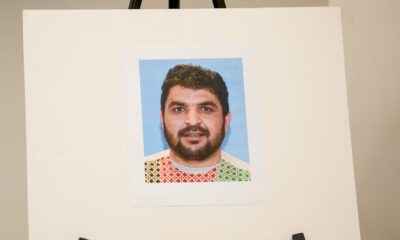
 Latest News5 days ago
Latest News5 days agoUS Justice Department to seek death penalty for Afghan suspect in National Guard shooting
-

 Latest News3 days ago
Latest News3 days agoAfghanistan says Pakistan is shifting blame for its own security failures
-
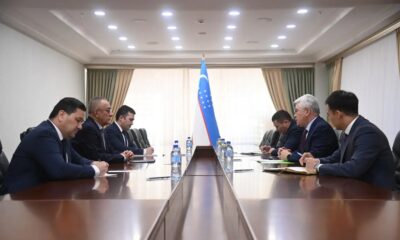
 Latest News5 days ago
Latest News5 days agoUzbekistan, Kazakhstan discuss cooperation on Afghanistan
-

 International Sports2 days ago
International Sports2 days agoWinter Olympics gain momentum as medal table takes shape


